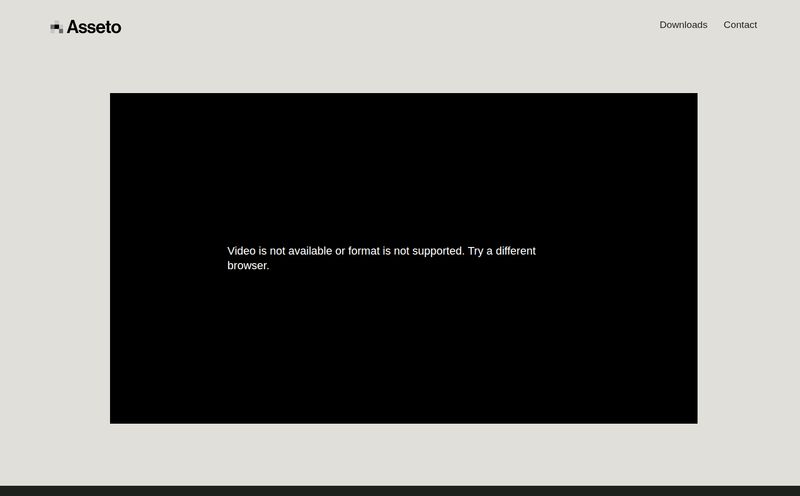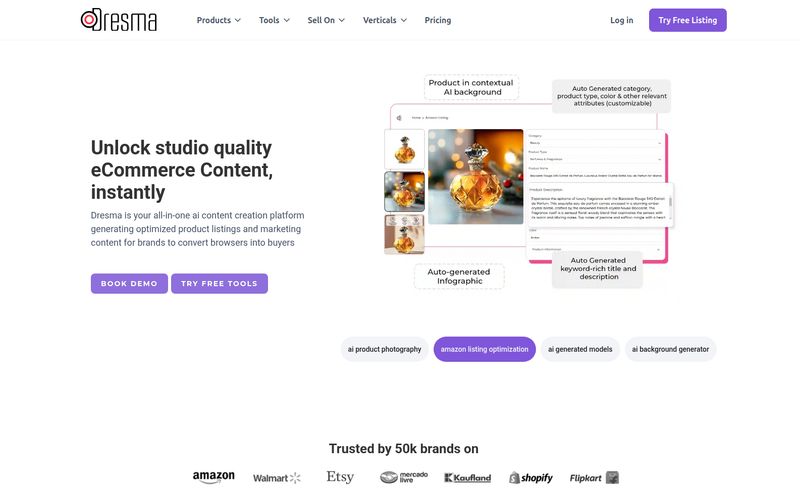I’ve been in the SEO game for a while. Long enough to remember when getting a link from DMOZ was a big deal. Long enough to remember the great “Voice Search will kill text!” panic of 2018. It never gets old, does it? Just when you think you’ve got Google’s number, a new shiny object appears on the horizon, and everyone loses their collective minds. Well, friends, the latest shiny object is here, and it’s a big one: Artificial Intelligence.
Specifically, ChatGPT. It feels like every other client email these days mentions it. “How do we get our brand mentioned by ChatGPT?” “Are we optimized for AI search?” These are the questions keeping us up at night now. So when I stumbled across a new tool—let's call it ChatGPT Rank Insights for our chat today—that claims to analyze and improve your website's ranking inside ChatGPT, I was intrigued. And, if I'm being honest, a little bit skeptical. Is this the future, or just another flash in the pan?
So, What Is This Newfangled ChatGPT Ranking Tool?
The premise is simple enough. You pop in your website URL, and it spits out a report. This report supposedly shows you how you stack up against your competitors in the eyes of ChatGPT. Think of it less like a traditional SERP tracker and more like a reputation report from a very smart, very confident, and sometimes completely unpredictable robot brain. It’s designed to give you a peek behind the AI curtain.
The tool’s main pitch is that it can tell you what to do to “beat” your competitors in AI-driven conversations. A bold claim, for sure. Here’s a quick rundown of what I found when I took it for a spin.

Visit AI SEO Ranking Reports
My First Impressions and What It Actually Does
After plugging in a few of my own sites and some competitor domains, I started to get a feel for its core functions. It really boils down to three main things.
The AI Ranking Analysis
This is the star of the show. The tool gives you a sense of your “visibility” within ChatGPT. It’s not a simple “you are rank #3” like in Google. It’s a bit more abstract, seemingly analyzing how likely the AI is to mention or reference your site when prompted on relevant topics. It’s trying to quantify your brand’s authority within the AI’s knowledge base. Kinda neat, kinda weird.
The Competitor Takedown
Like any good SEO tool, it has a competitor analysis feature. You can see who ChatGPT seems to favor in your niche. For example, in the “handmade dog collars” space, does it consistently reference Etsy, or does it bring up smaller, more specialized blogs? This is genuinely useful information because it shows you who the AI has already crowned as an authority.
The Actionable (ish) Recommendations
And of course, it wouldn’t be an SEO tool without a list of things to do. The recommendations ranged from fairly standard on-page SEO advice—like improving content clarity and structure—to more nuanced suggestions about building topical authority and getting citations from sources ChatGPT trusts. This part immediately made me think, “Okay, this isn't for rookies.” More on that in a moment.
The Good, The Bad, and The... AI-Generated?
No tool is perfect, and one that operates in such a new and fuzzy area is bound to have some sharp edges. After playing with it for a few days, here’s my honest breakdown.
What I Actually Liked
First off, the novelty is a huge plus. We’re all trying to figure out how AI will fit into our search strategies, and any data point is better than none. Getting a glimpse, however flawed, into this black box is valuable. It gives you a potential first-mover advantage. While everyone else is guessing, you have some data to guide your experiments. The competitor analysis, as I mentioned, is also a solid feature. Seeing who the AI overlords have already deemed worthy is a great starting point for your own content strategy.
The Parts That Make Me Nervous
Okay, let's get real. The biggest issue I have is the complete lack of transparency in its methodology. How exactly is it determining these rankings? Is it running a series of controlled prompts through the OpenAI API? Is it scraping data? The tool doesn’t say. And as any SEO worth their salt will tell you, trusting data without knowing its source is like getting directions from a stranger in a dark alley. It might work out, but you should probably be cautious.
Secondly, its effectiveness is tied to the whims of ChatGPT itself. I've personally asked ChatGPT the same question an hour apart and gotten two wildly different answers. The AI is constantly being updated, and its responses can be inconsistent. So, if you optimize your site based on a report from Tuesday, will those changes still be relevant on Friday? It's like trying to get a weather forecast from a moody cat—unpredictable at best. This dependence on a third-party, closed-source system is a significant risk.
Finally, the recommendations require a fair bit of interpretation. The tool might say “Improve topical authority,” but it doesn’t give you a step-by-step playbook. You need to have existing SEO knowledge to translate that suggestion into a concrete action plan of content clusters, internal linking, and E-E-A-T signals. This is not a magic wand.
AIO vs SEO: Is Optimizing for ChatGPT a Fool's Errand?
This brings us to the million-dollar question: should we even be trying to optimize for AI? Some very smart people in our industry, like the folks over at Moz, argue that good, fundamental SEO is all you need. Their logic is that AI models, much like Google's traditional algorithm, are designed to find and reward high-quality, authoritative, and trustworthy content. If you focus on creating the best resource for humans, the robots will eventually follow.
I don’t think they’re wrong. But I also don’t think it's a completely binary choice. In my book, foundational SEO is the bedrock. It’s the non-negotiable. Your site needs to be technically sound, fast, and filled with expert content that follows E-E-A-T principles. That’s your ticket to the game.
But this new field of AI Optimization (AIO), as some are calling it, could be the advanced strategy that sets you apart. Think of it as the fancy landscaping on your solid foundation. It's about understanding the specific ways LLMs process language, structure data, and establish connections. This is all part of the larger trend we're seeing with Google's Search Generative Experience (SGE). The line between search engine and answer engine is blurring, and tools like this, for all their flaws, are our first attempt at navigating that new world.
What's the Damage? A Look at the Price Tag
Here’s a fun twist: I couldn't find a price. The website doesn't have a pricing page, and there was no mention of a subscription during signup. This usually means one of two things: it's a brand-new tool in a free beta period to gather users and data, or it's a side project that might be free forever. Either way, for now, it seems to cost nothing but your time. That makes the barrier to entry pretty darn low. My advice? Get in and play around with it while it's free. You’ve got little to lose.
Who Should Actually Use This Tool?
So, is this tool for you? Let's break it down.
Yes, give it a shot if you are:
- An SEO professional or a digital marketing agency looking to stay on the cutting edge and find new data points for your reports.
- A content marketer in a highly competitive niche who needs every possible advantage.
- Someone who is just genuinely curious about the future of search and loves to experiment.
Maybe hold off if you are:
- A small business owner with limited time. Your energy is better spent on proven, fundamental SEO tactics first.
- An SEO beginner. The lack of guidance and need for expert interpretation could lead you down some unproductive rabbit holes. Master the basics before you start chasing the ghosts in the machine.
The Final Verdict
So, what’s my takeaway on ChatGPT Rank Insights? It's a fascinating, flawed, and futuristic tool. It offers a tantalizing peek into the black box of AI rankings and provides a new-ish dataset for competitor analysis. But its mysterious methodology and reliance on the ever-changing nature of ChatGPT mean you should take its findings with a hefty grain of salt.
Don't abandon your Ahrefs subscription just yet. Don't stop focusing on creating amazing content for human beings. Use this tool as it should be used: as an experiment. A conversation starter for your team. A single, slightly blurry data point in your overall strategy. The world of search is changing, that's for sure, but the fundamentals of quality and authority are more important than ever. This just adds another layer to hte puzzle.
Frequently Asked Questions about ChatGPT SEO
- How does ChatGPT even "rank" websites?
- It's not a formal ranking system like Google's. It's more about association and authority. The AI "ranks" sites by how often it has learned from them, how authoritative they are considered in its training data, and how likely it is to cite or mention them as a reliable source when answering a user's question.
- Is a tool like this a replacement for SEMrush or Ahrefs?
- Absolutely not. Think of it as a specialist supplement. Your core SEO platforms like Ahrefs, SEMrush, or Moz are essential for backlink analysis, keyword research, and technical audits for traditional search engines. This tool serves a very different, very niche purpose for AI-driven platforms.
- Can I improve my ChatGPT ranking without a special tool?
- Yes, most definitely. The best way is to focus on the principles of E-E-A-T (Experience, Expertise, Authoritativeness, Trustworthiness). Create clear, well-structured, comprehensive content. Get cited on other authoritative websites. In short, become a genuinely trustworthy source of information in your field, and both Google and AI models will likely recognize it.
- Is "AIO" (AI Optimization) a real thing or just a new buzzword?
- It's a bit of both right now. It's definitely a buzzword, but there's a real concept behind it. AIO refers to the practice of optimizing content not just for traditional search engine crawlers but also for large language models. As AI becomes more integrated into search (like with Google's SGE), it will become a more concrete and established discipline.
- How reliable are the recommendations from a tool like this?
- Their reliability is questionable. Since the tool's methodology is a black box and ChatGPT's own outputs can be inconsistent, you should treat the recommendations as educated guesses or interesting hypotheses to test, not as gospel.
Reference and Sources
- The Moz Blog - For ongoing expert commentary on SEO best practices.
- OpenAI's ChatGPT - The AI platform at the center of this discussion.
- Google's Search Generative Experience (SGE) - Information on how Google is integrating AI into its search results.



